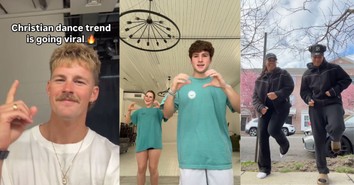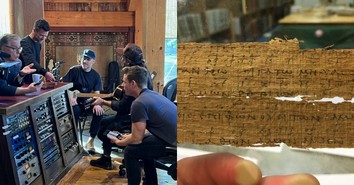Why Leaving Church Doesn’t End the Search for Spiritual Belonging

A recent article in USA Today noted that as millions leave organized religion, they can’t quite let go of organized “religiony” things. I charted one aspect of this in a recent blog; namely, that people who reject the Christian faith very much want to embrace Christian culture.
But the article in USA Today revealed a different dynamic. It explored how those who reject the Christian religion – as in formalized membership or participation in a church or denomination – very much want to embrace some kind of spiritual community and gathering.
Consider Brad Ruggles, a former pastor of a small church in a north Indianapolis suburb. He found himself struggling with various stances taken by his church and denomination and eventually stepped down. Yet he “craved the brotherhood he’d enjoyed as part of a congregation.” He soon found himself a part of a Sunday collective that described itself as a “home for the spiritually homeless.”
As USA Today reports, such communities show how, despite Americans’ ongoing abandonment of traditional organized religion, “many are longing to maintain some sense of spirituality and community in their lives are finding it in places” that are… well, still very religious. And not just places but gatherings of people.
Examples include the Current Collective, a community in California that describes itself as “rooted in the mystic Christian tradition” with a dogma-free theology. Then there’s the Sunday Assembly USA, a London-based secular network with branches in 13 American cities. Sociologist Christian Smith calls it the “post-religious organizational field.”
It's been widely noted that human beings are innately spiritual, if not religious. We are, all of us, deeply spiritual beings regardless of our individual beliefs. One of the most interesting manifestations throughout all civilizations is the deep spiritual hunger of men and women. Anthropologists have discovered that human beings are incurably spiritual and conscious of the idea of God. This was described by Blaise Pascal, the great 17th-century philosopher and mathematician, as the “God-shaped hole” in every human being.
Those entering the post-religious organizational field often say they are seeking to get away from organized religion, but the irony is that they are simply forming another one—one that simply rejects the doctrines of the ones they embraced before.
So, let’s be clear about much of the de-churching that is taking place with the rising of the nones. For many, it is not jettisoning the broad contours of the Christian faith, spiritual community, or even the idea of church. It is jettisoning historic Christian orthodoxy, distinctly Christian community, and the gathering of Christ followers for the purpose and mission of being a Christian church. And then replacing it with a gathering that has no beliefs that transcend human thought, a community that is not infused with the power and presence of the living God through the Holy Spirit, and a purpose that does not go beyond satisfying spiritual narcissism. Their stance on oversight is to have no oversight, their stance on doctrine is to have no doctrine, and their stance on spirituality is to have their own spirituality.
But yet they gather.
So, it would seem that we are not simply incurably religious but incurably churchy. Which is why I don’t believe it will be long before they hunger for far more than the “brotherhood” they had before,
... but the actual church.
James Emery White
Sources
Marc Ramirez, “As Millions Leave Organized Religion, Spiritual and Secular Communities Offer Refuge,” USA Today, September 3, 2024, read online.
James Emery White, Christianity for People Who Aren’t Christians (Baker), order from Amazon.
Photo Credit: ©iStock/Getty Images Plus/fizkes
Published Date: September 9th, 2024
James Emery White is the founding and senior pastor of Mecklenburg Community Church in Charlotte, NC, and a former professor of theology and culture at Gordon-Conwell Theological Seminary, where he also served as their fourth president. His latest book, Hybrid Church: Rethinking the Church for a Post-Christian Digital Age, is now available on Amazon or from your favorite bookseller. To enjoy a free subscription to the Church & Culture blog, visit churchandculture.org where you can view past blogs in our archive, read the latest church and culture news from around the world, and listen to the Church & Culture Podcast. Follow Dr. White on X, Facebook, and Instagram at @JamesEmeryWhite.
Originally published September 09, 2024.





